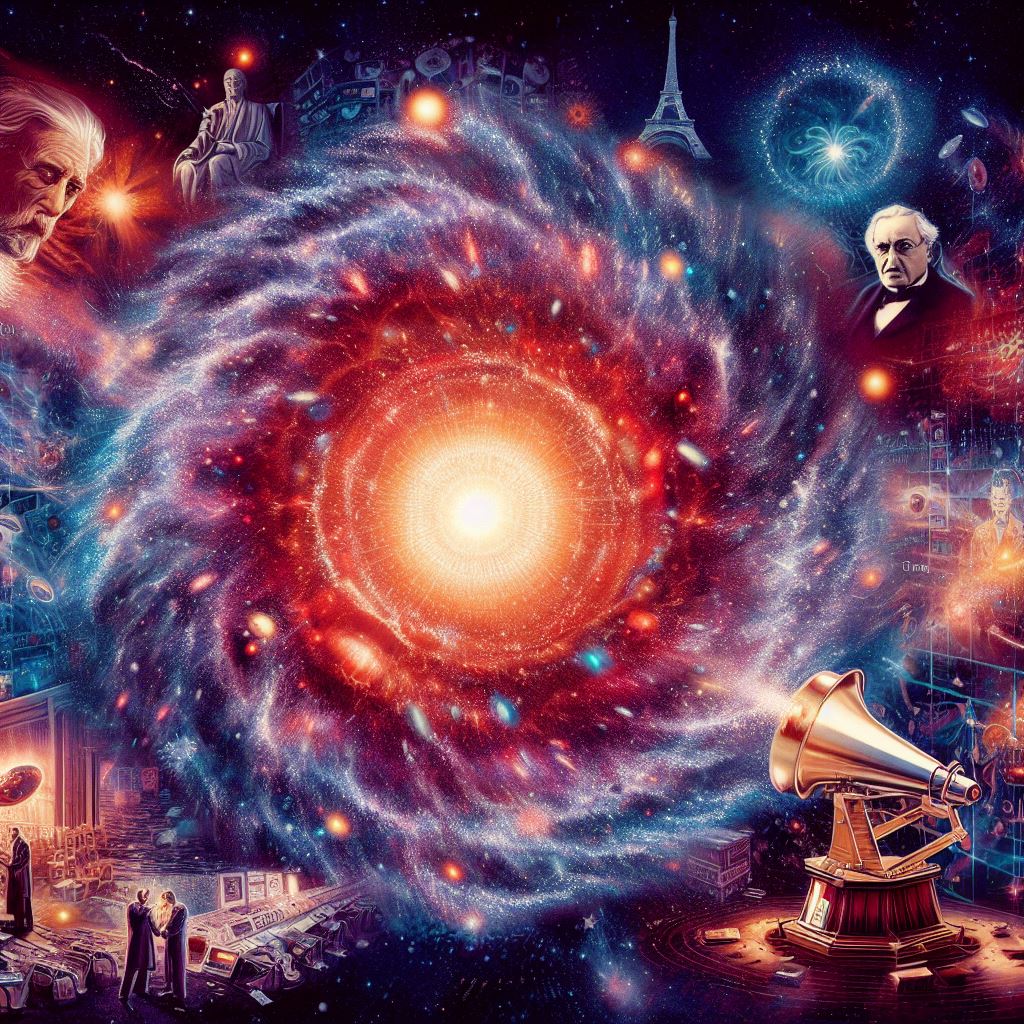
Big Bang Theory Explained: Origin & Evidence
The Big Bang Theory is more than just a popular TV sitcom; it is the foundation of our understanding of the universe's inception. This article delves deep into the science behind the Big Bang Theory, offering an in-depth and authoritative view on its origins, the evidence that supports it, and the discussions it has spurred in the scientific community.
What is the Big Bang Theory in Science?
At its core, the Big Bang Theory postulates that the universe originated from a singularity - a point of infinite density and temperature - and has been expanding ever since. This momentous explosion not only gave birth to all the matter we see today but also set in motion the cosmic events that have shaped the universe.
Historical Development and Key Scientists
The idea of the Big Bang Theory wasn't accepted overnight. It was the culmination of numerous observations, studies, and the tireless work of many scientists:
- Georges Lemaître, a Belgian priest and astronomer, first proposed in 1927 that the universe is expanding.
- Edwin Hubble confirmed this theory in 1931 when he observed that galaxies were moving away from us, implying an expansion of the universe.
- Prominent physicist Stephen Hawking further contributed with his groundbreaking work on the nature of singularities and the universe's beginning in "A Brief History of Time".
Evidence Supporting the Big Bang Theory
The Big Bang Theory isn't just a hypothesis; there's compelling evidence supporting it:
-
Redshift: As galaxies move away from us, the light they emit shifts to the red end of the spectrum. This redshift supports the idea of an expanding universe.
-
Cosmic Microwave Background: This is the afterglow of the Big Bang. Discovered by Penzias and Wilson in 1965, this radiation provides a snapshot of the universe when it was just 380,000 years old.
-
Primordial Nucleosynthesis: The Big Bang Theory explains the abundance of light elements such as hydrogen, helium, and lithium in the universe.
Cosmic Microwave Background Radiation's Significance
Often termed the 'echo' of the Big Bang, the Cosmic Microwave Background (CMB) is a faint radiation that fills the universe. Detected by NASA's Wilkinson Microwave Anisotropy Probe (WMAP), the CMB offers a unique view of the universe's early moments. Variations in its temperature give insights into the initial conditions of our universe, solidifying its place as a cornerstone piece of evidence for the Big Bang Theory.
Expansion of the Universe
Universe Expansion is an integral concept of the Big Bang Theory. As the universe expands, galaxies drift apart, much like how spots on an inflating balloon would move away from each other. This continuous expansion provides a dynamic and ever-changing cosmos, challenging our understanding and prompting deeper investigations into the nature of dark energy and matter.
Criticisms and Alternatives to the Big Bang Theory
No theory is without its detractors and the Big Bang Theory is no exception. Some scientists propose alternative models like:
- Steady State Theory: This suggests the universe has no beginning or end and is eternally expanding.
- Oscillating Universe Theory: Proposes the universe undergoes infinite cycles of Big Bangs and Big Crunches.
However, with the mounting evidence in favor of the Big Bang Theory, these alternatives are less favored in the scientific community.
Current Standing in the Scientific Community
Today, the Big Bang Theory remains the most widely accepted explanation for the universe's origin. Renowned publications like Nature and Science frequently cover updates and refinements to the theory, reinforcing its importance and relevance.
"The Big Bang Theory offers a compelling explanation for the birth and evolution of the universe. Its enduring strength lies in its adaptability and its ability to integrate new discoveries." - Stephen Hawking
Conclusion
For students, educators, and science enthusiasts alike, the Big Bang Theory stands as a testament to human curiosity and our quest for understanding. As science continues to evolve, so too will our understanding of the cosmos, but the Big Bang Theory will forever remain a significant milestone in our cosmic journey.
References:
- Hawking, S. (1988). A Brief History of Time.
- NASA's Wilkinson Microwave Anisotropy Probe (WMAP) findings.
- Weinberg, S. (1977). The First Three Minutes.
- "The Big Bang Theory" – [URL of a reputable scientific journal or institution].
- Penzias, A.A., & Wilson, R.W. (1965). A Measurement of Excess Antenna Temperature at 4080 Mc/s.





